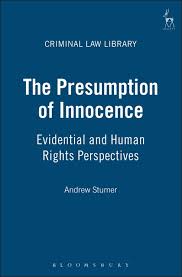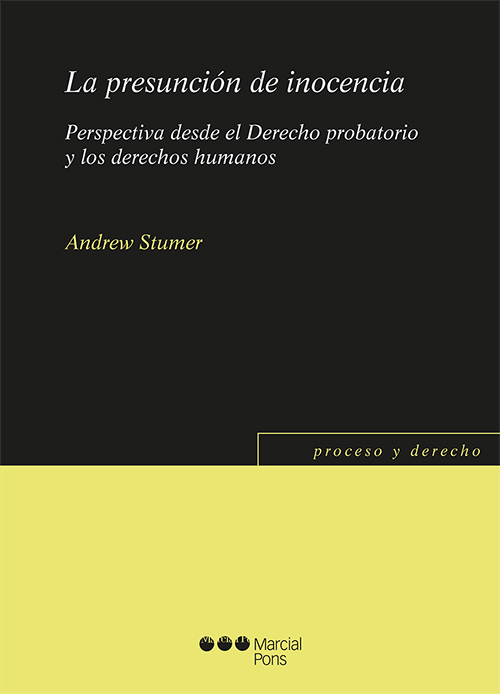The presumption of innocence
evidential and Human Rights perspectives
- ISBN: 9781849460361
- Editorial: Hart Publishing
- Fecha de la edición: 2010
- Lugar de la edición: Oxford. Reino Unido
- Encuadernación: Cartoné
- Medidas: 24 cm
- Nº Pág.: 258
- Idiomas: Inglés

The presumption of innocence is universally recognized as a fundamental human right and a core principle in the administration of criminal justice. Nonetheless, statutes creating criminal offences regularly depart from the presumption of innocence by requiring defendants to prove specific matters in order to avoid conviction. Legislatures and courts seek to justify this departure by asserting that the reversal of the burden of proof is necessary to meet the community interest in prosecuting serious crime and maintaining workable criminal sanctions. This book investigates the supposed justifications for limitation of the presumption of innocence. It does so through a comprehensive analysis of the history, rationale and scope of the presumption of innocence. It is argued that the values underlying the presumption of innocence are of such fundamental importance to individual liberty that they cannot be sacrificed on the altar of community interest. In particular, it is argued that a test of 'proportionality', which seeks to weigh individual rights against the community interest, is inappropriate in the context of the presumption of innocence and that courts ought instead to focus on whether an impugned measure threatens the values which the presumption is designed to protect. The book undertakes a complete and systematic review of the United Kingdom and Strasbourg authority on the presumption of innocence. It also draws upon extensive references to comparative material, both judicial and academic, from the United States, Canada and South Africa.
1. THE PRESUMPTION BEFORE THE HUMAN RIGHTS ACT
A. History of the Presumption of Innocence
B. Burden of Proof
1. Persuasive Burdens
2. Evidential Burdens
C. Standard of Proof
D. Impact of the HRA
E. Conclusion
2. RATIONALE FOR THE PRESUMPTION
A. Two rationales for the Presumption
1. Protecting the Innocent
2. Promoting the Rule of Law
B. Limitation of the Presumption
1. Limitation of Rights
2. Threat of Serious Crime
3. When the Rationale is Attenuated
C. Conclusion
3. SCOPE OF THE PRESUMPTION
A. Substantive Approach
1. Rejection in the English Cases
2. Case for a Substantive Approach
3. Other Constraints on Unfair Offences
B. Narrow Procedural Approach
1. Confusion in the English Cases
2. Case for a Narrow Procedural Approach
C. Broad Procedural Approach
1. Greater Power includes the Lesser
2. Risk of More Strict Liability Ofences
D. Conclusion
4. THE PRESUMPTION IN STRASBOURG
A. The Content of the Presumption
1. Official Decisions Reflecting Guilt
2. Burden of Proof
3. Presumptions Confined within Reasonable Limits
4. Article 6(2) and Substantive Law
B. Limitation of Article 6 Rights
1. Community Interest under Article 6(2)
2. Community Interest and other Article 6 Rights
C. Conclusion
5. PROPORTIONALITY AND THE PRESUMPTION
A. Confusion in the English Cases
1. Necessity Approach
2. Balance Approach
3. A 'Difference of Emphasis'
B. The Nature of the Proportionality Inquiry
1. Legitimate Objective
2. Suitability, Necessity and Balance
3. Proportionality and the Problem of Deference
C. Conclusion
6. ALLOCATING THE BURDEN OF PROOF
A. Seriousness of the Offence
B. Penalty
C. Regulatory Offences
1. Minimal Censure and Penalty
2. An Effective Regulatory Regime
D. Knowledge and Ease of Proof
1. Relative Ease of Proof
2. 'Peculiar Knowledge'
E. Importance of Matters Proved by Prosecution
1. Proof of Wrongfulness
2. Connection between Basic and Presumed Fact
F. Conclusion







